We’re registered dietitians who create recipes anybody can get pleasure from, and typically, we use protein powder in our recipes. We’ve even written about our favourite whey and plant-based protein powders after intensive testing.
This results in many questions from our readers about whether or not or not they really want protein powder — or even when they need to be involved about utilizing it.
Right here’s an inventory of the most typical questions our readers ship of their emails and feedback about the advantages of protein powder (and the potential dangers)! If you wish to add yours, simply drop a remark on the backside of this put up, and we’d like to reply.
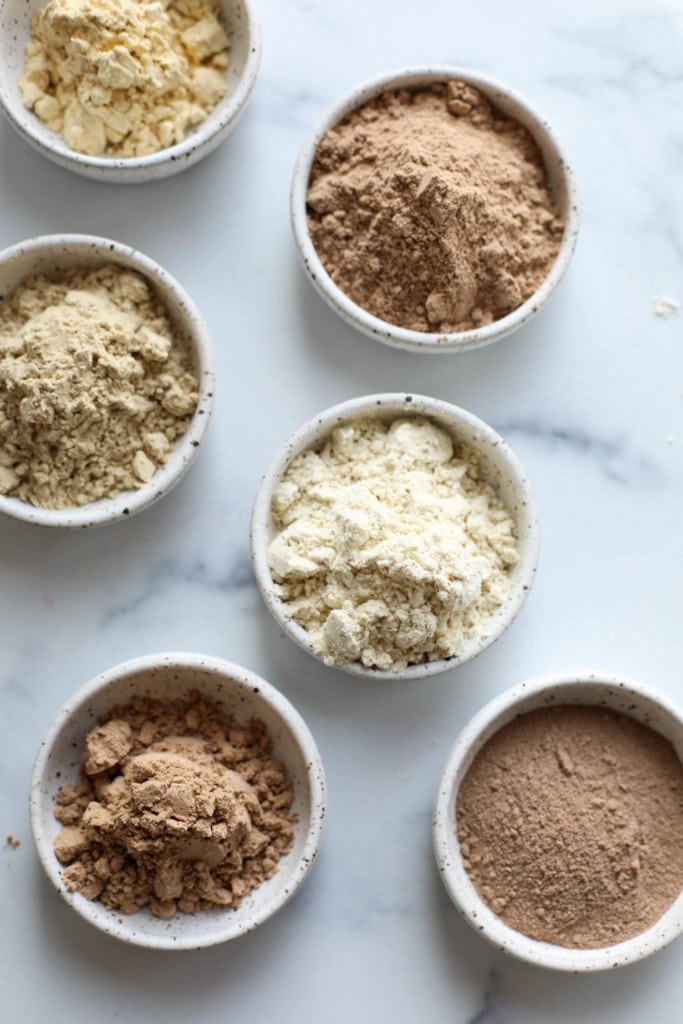
Ought to I Be Nervous About Heavy Metals In My Protein Powder?
With any dietary complement, high quality ranges will fluctuate fairly a bit — not like meals and drug merchandise, the FDA doesn’t regulate or take a look at them. The protein dietary supplements market is saturated with choices, and a few of them are going to be not-so-great whereas others have a clear and efficient ingredient profile. And sure, heavy metals have been present in protein powders, though simply the presence of a few of these compounds isn’t at all times as regarding as it would sound.
In 2018, the Clear Label Mission carried out an unbiased examine of 134 top-selling protein powders (in keeping with Nielsen and Amazon knowledge) from 60 completely different manufacturers. The exams confirmed some alarming outcomes. Of the protein powders examined:
- 70% had detectable ranges of lead
- 74% had detectable ranges of cadmium
- 55% had detectable ranges of BPA
- Plant-based protein powders (as a class) had extra heavy metals than whey protein powders
- 75% of plant-based protein powders examined optimistic for lead
- One protein powder examined had 25x the allowed regulatory restrict of BPA in only one serving
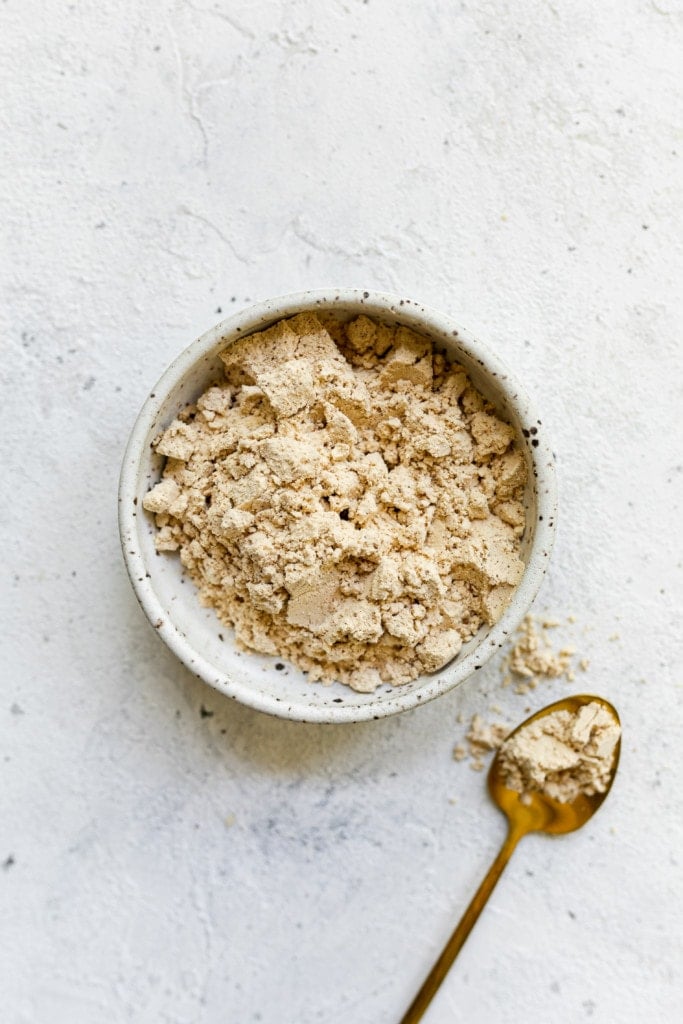
These are scary stats, however let’s put these outcomes into perspective just a little bit.
Heavy metals are naturally occurring substances within the earth’s crust and soil. So, many issues that develop within the soil include detectable ranges of heavy metals like cadmium, lead, arsenic, and mercury. That’s why it is smart that the plant-based protein powders on this examine contained extra heavy metals than the animal-based protein powders.
Your physique has heavy metals in it, and people even want sure ranges of iron, cobalt, copper, manganese, molybdenum, and zinc for the synthesis of key enzymes and for oxidation discount.
This specific examine has been criticized as a result of the information doesn’t differentiate between detectable ranges of heavy metals and acceptable ranges. Merely having detectable ranges doesn’t create a human well being danger. However constantly getting reasonable to excessive ranges of them does impose a danger of toxicity, which is why it’s finest to intention for a protein powder that has acceptable ranges of heavy metals, if any in any respect.
All the time examine for third-party testing. The perfect factor to do with protein powders (and any complement) is to make use of all the information that’s obtainable to you. The outcomes of the Clear Label Mission protein powder assessment are one supply that we depend on. We additionally look to make it possible for any protein powders we use or suggest are third-party examined for contaminants by organizations like NSF Worldwide, ConsumerLab, Knowledgeable Sport, and U.S. Pharmacopeia.
Manufacturers that conduct third-party testing are sometimes pleased with that truth, so a fast search on their product packaging and/or web site can normally let you know if they’re third-party licensed and by whom.
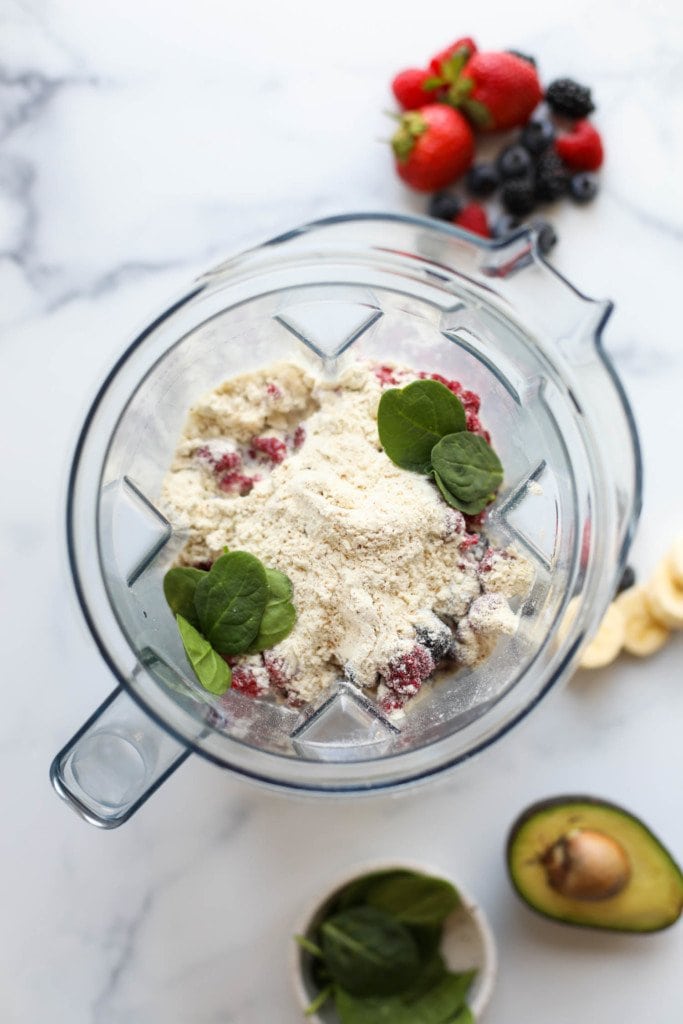
Will It Assist Me Lose Weight?
Utilizing protein powder isn’t a direct line to weight reduction. You may drop extra pounds no matter how a lot protein you devour. What protein powder (or protein on the whole) can doubtlessly do is enable you to preserve muscle mass whereas dropping physique weight. It’s not unusual to lose muscle whereas losing a few pounds if you happen to’re not getting sufficient protein.
Including protein powder to your drinks and meals, with out making another alterations to your eating regimen, is not going to essentially end in weight reduction. The truth is, it might trigger weight achieve by including extra energy (and possibly much more added sugars, relying on the model) to an in any other case unchanged consumption of vitamins.
Nevertheless, boosting protein in smoothies and different recipes whereas additionally rising fiber consumption might help you’re feeling extra full from meals and end in smaller parts, fewer meals cravings, and fewer senseless snacking over the day. If that’s the case, and also you’re additionally consuming fewer added sugars all through the day whereas rising protein consumption, then protein powder might help you preserve muscle mass (aka “not lose muscle”) as you pursue a weight reduction plan.
Will It Assist Me Construct Muscle?
Sure, consuming protein is important to the muscle-building course of, so getting further every day protein through powders might help. Whether or not you are attempting to keep up muscle whereas losing a few pounds or bulk up and construct muscle, you’ll wish to intention for an quantity of protein that accounts for 30-35% of your every day energy.
For somebody following a 2,000 calorie eating regimen, that will appear to be consuming 600-700 energy from protein, or 150 to 175 grams of protein. Since that’s lots of protein to get in a single day, including 1-3 scoops of protein powder to your day, spaced out amongst meals, snacks, and/or fluids is one technique that can assist you get that a lot protein.

Do I Truly Want This?
Definitely not everybody wants or ought to use protein powder. Nevertheless, it may be a way more handy possibility for rising your complete protein consumption in comparison with including a considerable amount of protein-rich meals.
The explanation many individuals do use a protein powder is as a result of they discover that they’re not getting near their advisable protein consumption for his or her age, gender, and exercise degree. Or, possibly they simply don’t eat high-protein meals fairly often.
Whey protein powder supplies between 20-25 grams of protein per single scoop, so it may be a easy and efficient strategy to enhance protein shortly. Merely stirring a scoop right into a cup of espresso, oatmeal, or yogurt is a fairly large protein payoff for little effort.
You too can get the same quantity by consuming 3 ounces of cooked rooster, beef, turkey, seafood, or pork, or 1 cup of cottage cheese, for instance.
Some individuals who may benefit from the next protein consumption, whether or not that’s from a protein powder or different sources, are:
- older adults experiencing muscle loss, which is a pure development that begins for most individuals of their 30s and hurries up considerably round ages 50-60 (generally known as sarcopenia)
- individuals recovering from an sickness or an infection, extreme burns, or surgical procedure
- bodily lively individuals and athletes who’ve elevated put on and tear on muscle mass
- individuals making an attempt to drop extra pounds with out shedding muscle
- individuals making an attempt to realize muscle mass
- somebody with a malabsorption or inflammatory problem, equivalent to Crohn’s illness, celiac illness, cystic fibrosis, and a few cancers
- somebody who’s pregnant (particularly within the 2nd and third trimester) or breastfeeding
- vegetarians and vegans who aren’t intentional about getting protein each day or who don’t get them from a wide range of plant-based sources
Is It Protected To Use Protein Powder Each Day?
Sure, it’s secure for many wholesome adults to devour protein powder every day. And a constant consumption of protein powder might even present some research-backed advantages equivalent to sustaining a wholesome weight, lowered blood stress, improved satiety and fewer starvation cravings, and constructing muscle.
What it’s not secure to do is to make use of extreme quantities of protein powder each day, which might result in kidney harm. Along with getting protein from meals, a secure and wholesome consumption of protein powder is 1-3 servings every day.
What Will Occur If I Get Too A lot Protein?
It is doable to get an excessive amount of protein. For those who do, you’d be placing extra pressure in your kidneys, inflicting intestinal discomfort and diarrhea, and you might additionally expertise complications, fatigue, irritability, and/or weight achieve.
However getting an excessive amount of protein is fairly uncommon, because you’d be having to eat a ton of protein-rich meals or take 10+ scoops of protein powder every day (factoring in no different dietary protein) to get to dangerously excessive ranges.
The tolerable higher restrict (the best you might safely go) for wholesome adults is 3.5 grams of protein for each kg of weight (or 1.6 grams of protein for each pound you weigh). For instance, an individual who weighs 160 lbs mustn’t exceed 256 grams of protein in a day (160 x 1.6 = 256).
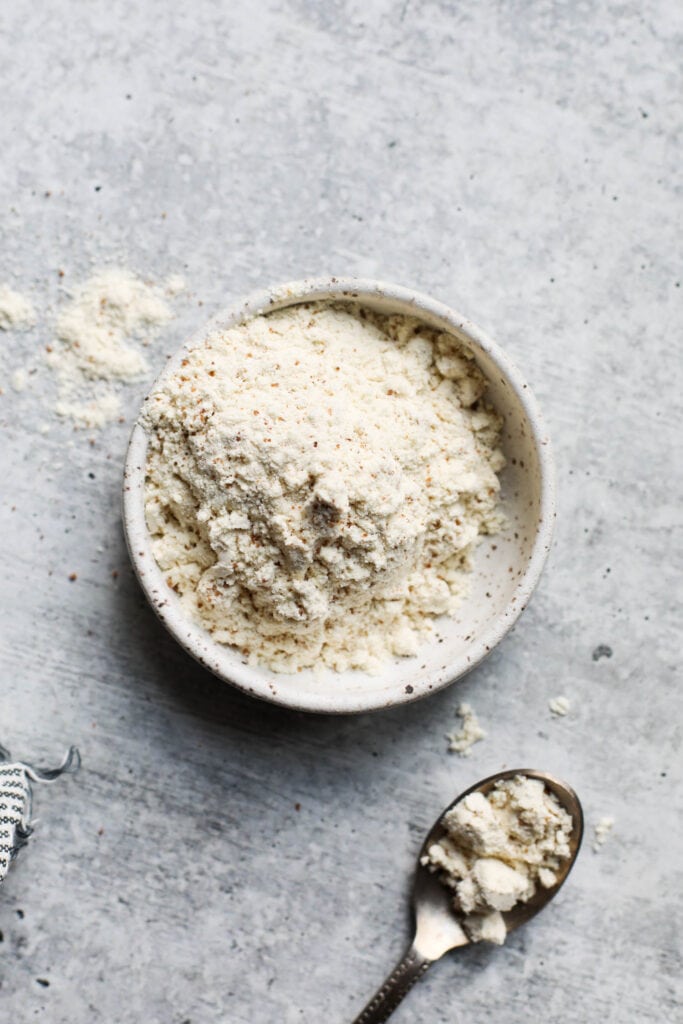
What Elements Ought to I Look For? Which Ones Ought to I Keep away from?
Some substances that point out the next high quality sort of protein powder are:
- whole-food protein sources, equivalent to grass-fed whey, peas, brown rice, quinoa, hemp seeds, pumpkin seeds, chia seeds, and even watermelon seeds
- if utilizing a whey protein for constructing muscle, search for one with 3 particular BCAAs (branched chain amino acids): leucine, isoleucine, and valine
- zero sweeteners OR pure sweeteners in low quantities, equivalent to coconut sugar, natural cane sugar, stevia, monk fruit, Reb-M (fermented sugarcane), or erythritol
- some protein powders additionally include omega-3s, which may be useful for minimizing post-exercise soreness
- blends that embrace digestive enzymes (equivalent to lactase, protease, amylase, and lipase) may be useful if you happen to expertise bloating, cramps, or gasoline ache after utilizing protein powder
Some substances to keep away from in protein powders are:
- synthetic colours, sweeteners, and flavors (they don’t trigger hurt in small quantities, but it surely’s finest to keep away from them in merchandise you utilize each day)
- fillers like maltodextrin, cornstarch, or cellulose (they enhance quantity with out offering vitamin)
- excessive sugar ranges (this could vary from 0 to twenty+ grams per scoop)
- dietary allergens that you could be wish to keep away from, equivalent to nuts, eggs, dairy, gluten, or soy
Ought to I Use Whey Protein Or A Plant-Primarily based Choice?
Whey protein powder supplies extra protein (sometimes 20-25 grams per scoop) than plant-based powders (sometimes 15-20 grams per scoop) and it’s extra environment friendly in your physique to digest. Additionally, as a class, whey- and casein-based powders include fewer heavy metals than plant-based powders.
There are some research that present plant-based protein powders usually are not as efficient at constructing muscle as animal-based protein powders are, however different research present little distinction. Technically, plant-based choices like pea protein aren’t “full proteins,” that means they don’t include all 9 important amino acids, however this isn’t mandatory in your protein powder if you happen to’re hitting your protein wants with meals, too.
If you’re vegan, 100% dairy free, or extremely delicate to lactose, a plant-based protein powder is the best choice. Apart from that, it actually comes down to non-public choice.
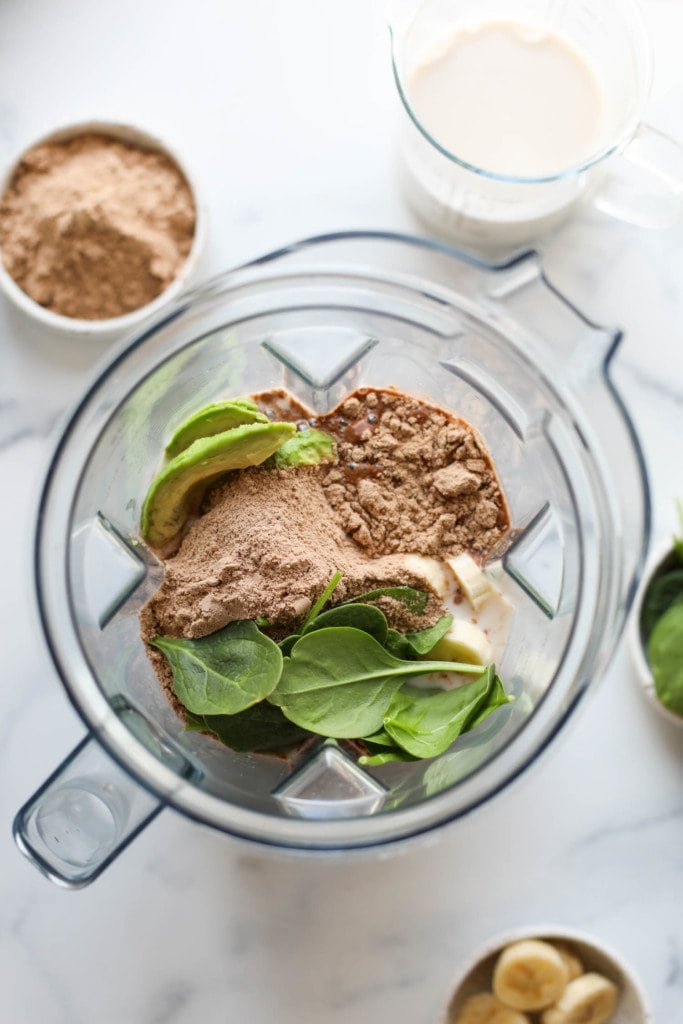
Will Soy Protein Powder Disrupt My Hormones?
Brief reply: No.
There are rumors on the market that the phytoestrogens in soy protein can enhance breast most cancers danger, trigger thyroid hormone imbalances, contribute to infertility, and even trigger males to develop “man boobs.” However these rumors have been debunked by science, with a meta evaluation of medical research exhibiting that there’s no hormonal impact in males or girls.
A plus for soy-based protein powders is that they’re the one single-ingredient plant-based protein that gives all 9 important amino acids. One examine even confirmed that it created muscle development matching that of whey protein.
A draw back for soy-based protein powders (and why they don’t seem in our checklist of high plant-based choices) is as a result of almost all of them are primarily based on soy protein isolate. It’s a closely processed ingredient that makes use of chemical compounds to strip soybeans down right into a protein-rich white powder whereas eradicating all of the useful fiber and minerals. This course of may also go away behind undesirable residues, equivalent to hexane, aluminum, and nitrites.
Why Is There Ldl cholesterol In Whey Protein Powder?
Any animal-based product comprises some quantity of ldl cholesterol. And since whey protein is constituted of the milk of cows, it comprises some ldl cholesterol, too, identical to steak, milk, eggs, cheese, and rooster. Whey protein comprises about 100 milligrams of ldl cholesterol per serving on common.
Opposite to common perception, consuming meals that include dietary ldl cholesterol doesn’t have a direct impact on blood ldl cholesterol. The truth is, analysis exhibits there’s no correlation between dietary ldl cholesterol consumption and the event of heart problems. As a substitute, the most important affect on blood lipid ranges (like complete ldl cholesterol, HDL ldl cholesterol, and LDL ldl cholesterol), are the combination of carbohydrates and fat in your eating regimen.
Since protein powder is just not sometimes a high-carb or high-fat product, its affect on blood levels of cholesterol is usually not a priority.
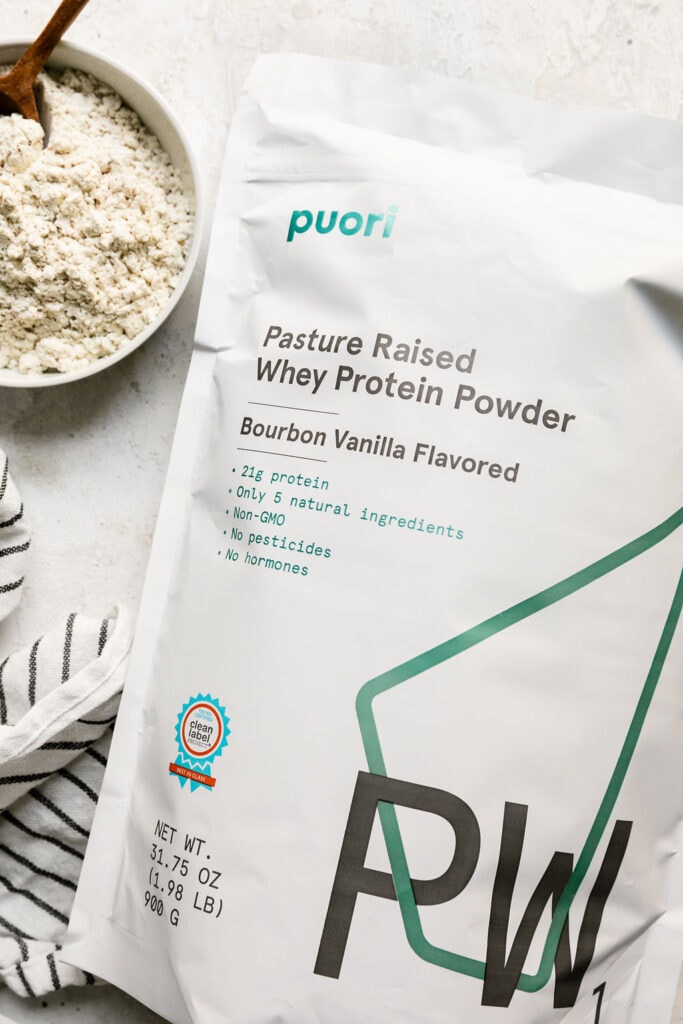
Which Protein Powder Ought to I Use?
Since we get requested about protein powders so typically, we created our checklist of favourite whey protein powders and plant-based protein powders. Test these posts out for much more particulars on those we suggest.
Over a number of months, we reviewed ingredient labels at size, checked for high quality requirements and third-party testing, examined them for solubility in liquids and in baked items, tasted them to verify it’s a nice expertise, and averted powders that had issues we didn’t need, like synthetic sweeteners, fillers, and sketchy advertising claims. We additionally replace our lists yearly as we pattern new protein powders.
Listed here are a number of of our go-to protein powders:
For final success, we extremely suggest studying the ideas within the full weblog put up above. All pictures and content material are copyright protected. Please don’t use our pictures with out prior written permission. For those who want to republish a recipe, please rewrite the recipe in your individual distinctive phrases. Hyperlink again to the supply recipe right here on The Actual Meals Dietitians. Thanks!